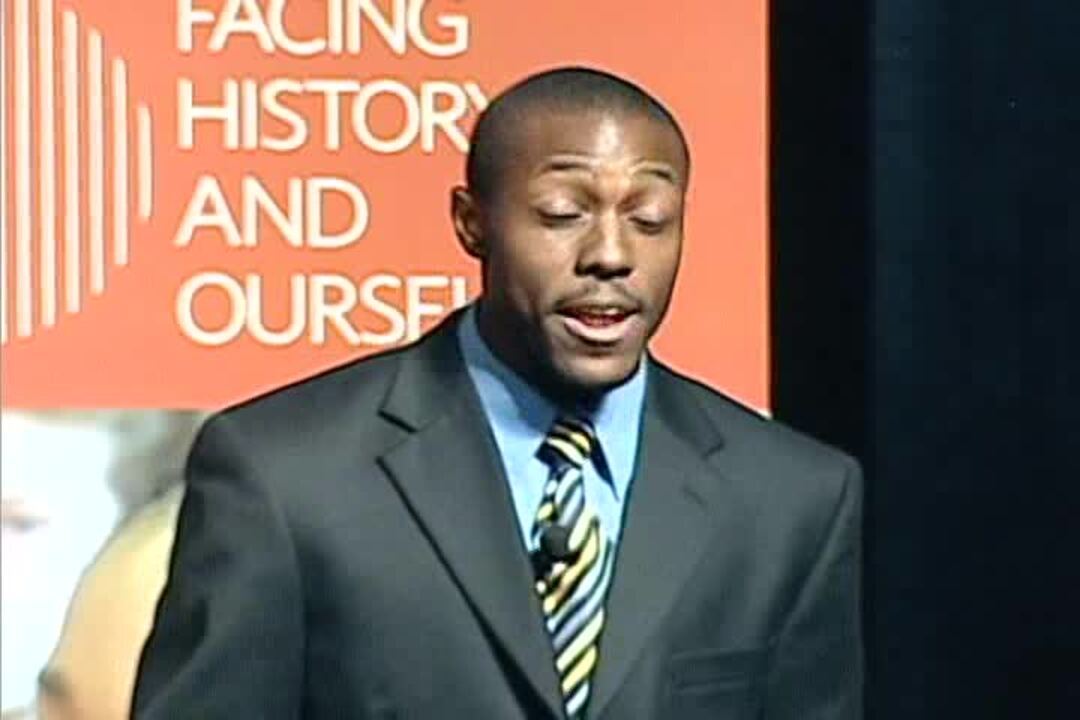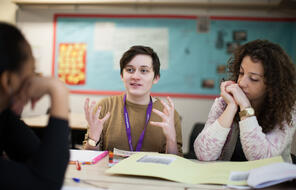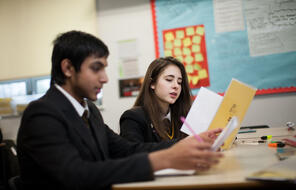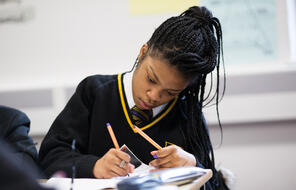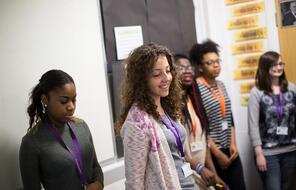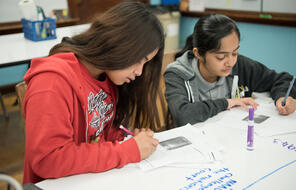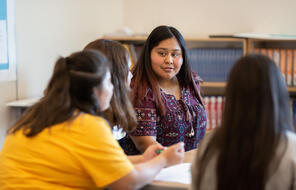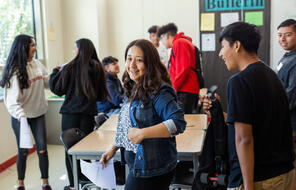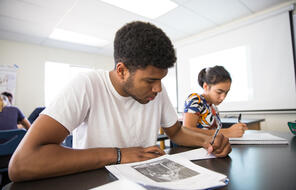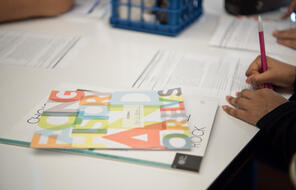I remember when I felt like I had no voice. Before I faced history, before college was a choice. It was my freshman year of high school when I took my first Facing History course. They taught me about identity, community, and choosing to participate.
Now, I'm involved in my community because I chose to participate. Because I used to feel like my words were like the crooked figures hidden under the barcodes that are pasted on the beaten backs of books that I was never supposed to read. My words-- numbered. Because I used to wonder, how do they see me? How do I see them?
For I noticed that there's this thing called perception that gives people the opportunity for exception or, on the flip side, to be in this circle of rejection. All different type of sections and groups of cliques, making fun of that person and talking bad about this person, so I ask you, what is your outlook on things? All these different stereotypes and all types of legal rights being violated because you look this way, and you act that way.
And you're telling me it's OK to give a blind eye to the less fortunate, simply because they're beneath you? Test. You in a dark suburban alley alone, see a Black man looks like he's far away from home. Fear runs down your spine and your thoughts roam as you say in your mind, this little Black boy is up to no good and should be picked up by the police.
But would you believe that that boy was me and what they didn't see was, I was coming home from youth group. So tell me: why the mode of predetermined thought towards me? I'm not in that percentile. We're trying to be all that we can be, and they still stoned me with their misconceptions about Black men.
They tend to understand and assume I'm into misconjugated verbs, oversized pants, and hip hop. And if I say I'm not. It said that I'm not a real Black person. Many times, perception leads to this open door of deception. Stop. Because now, in college, just as I started to speak, they told me that kind of stuff doesn't happen to me.
They told me, that kind of stuff only happens to those Black dudes running the street, but it happened to me. They said, excuse me, sir, can I see your ID? Can you see my ID? I was walking down the street that I live on, in a new college campus that I reside on, 12 years of public education that I stand on, accepted into a private university, and I just got racially spit on?
Because how can I see this when they don't expect me to look like a person who belongs on these educated streets as I attempt to be a victim of a resistor, of being a victim of surroundings that are less than safe. Some look at me and feel like they're less than safe. In this plea for some to be free makes a lot of people feel less than safe, but their glances at night make me feel less than free.
So this is not a statement of my bitterness. When I see ignorance, I only use it to articulate my intelligence. So this is a statement of my life and my commitment to Facing History and Ourselves. This is a siren to all the students in Facing History classes around the world that I will be there.
And I will continue the fight for justice for those who will be here, for those little boys and girls growing up in elementary schools looking up to corrupt officials that build jail cells by counting how many minorities are born each year. I'll be there, fighting for those students who feel like their voices have been silenced. I'll be there, telling those cant's that they can because I care. So where will you be? Because I will be there. Thank you.
[CHEERS AND APPLAUSE]
